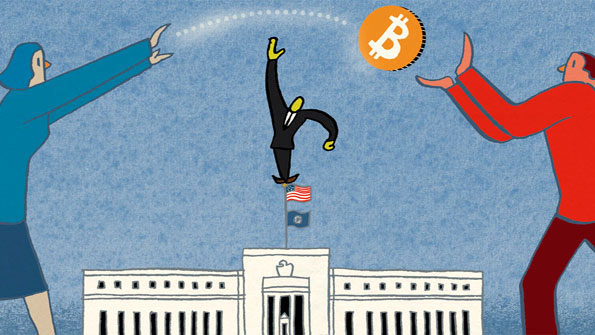As Bitcoin grows in importance as a safe alternative method of payment, governments around the world tend to have very different outlooks on people buying bitcoins, the once shadily-perceived virtual currency.
When the first 50 Bitcoins were “minted” back in 2009 as an alternative method of online payment relying on a decentralized server network, little did its inventors know what bone of contention, they were about to throw the online community with it. In its first days, Bitcoins had no means of conversion into real world value. This changed, when members of its proprietary Bitcointalk forums agreed upon the first rates at which the virtual currency could be converted into real world money, making buying Bitcoins a possibility. Since then, the exchange rates have undergone dramatic roller-coaster rides, ranging from as little as USD $8 up to USD $670 in the course of a few years, sometimes even months or weeks.
 The federal government has taken a rising interest in the virtual currency in the last two years, as it fears it to be a key element in the black market of illegal activities, ranging from shady Silk Road deep web transactions to remuneration for terrorist activities. Since then the US government has found ways to seize, tax and measure Bitcoin fortunes in an unprecedented way. Regulating the virtual currency has been given added effort by US financial and legal agencies, but binding rules on it are as of today not agreed upon, leaving Bitcoin in a bit of a grey area as a method of payment or even a feasible trading commodity on the world’s financial markets.
The federal government has taken a rising interest in the virtual currency in the last two years, as it fears it to be a key element in the black market of illegal activities, ranging from shady Silk Road deep web transactions to remuneration for terrorist activities. Since then the US government has found ways to seize, tax and measure Bitcoin fortunes in an unprecedented way. Regulating the virtual currency has been given added effort by US financial and legal agencies, but binding rules on it are as of today not agreed upon, leaving Bitcoin in a bit of a grey area as a method of payment or even a feasible trading commodity on the world’s financial markets.
Other countries, like Germany, have taken a different approach to buying Bitcoins: The German Federal Government, Europe’s current economical powerhouse, have recognized Bitcoin as a private unit of account, giving it the formal status of “privately organized currency” and making it taxable by the federal government in an official way. This makes Germany one of the first countries to officially recognize the decentralized virtual currency and giving it legal status. Buying Bitcoins in Germany has therefore left the shady back alleys of grey market deep web services and gives users and investors at least some level of security.
Using Bitcoin as a method of payment has taken a step further in 2015, when Munich based Bank Fidor officially announced that it will link Bitcoin exchange rates to the classical financial marketplaces. This makes buying Bitcoins in the Old World easier and safer than anywhere else in the world, increasing acceptance and transparency in a move unheard of on US based marketplaces.